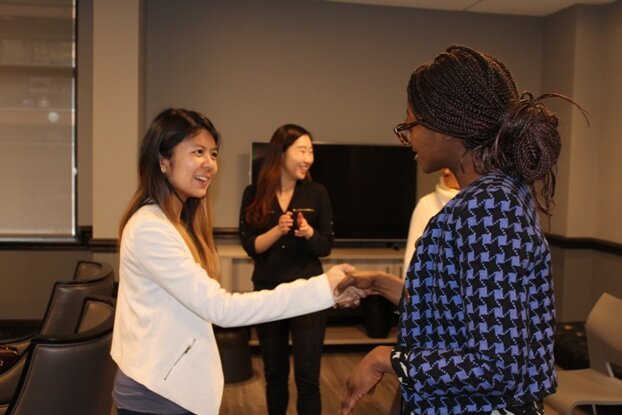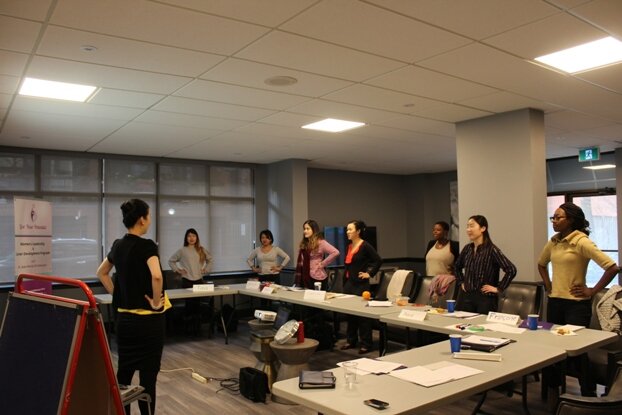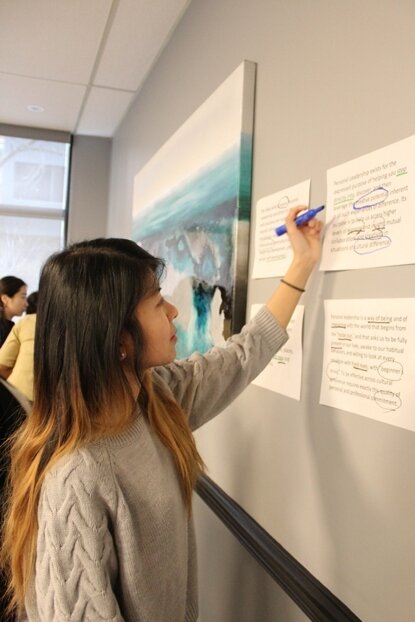Raise your hand if you’re burnt out and on the verge of breaking down from exhaustion.
I was talking to a friend the other day, and he said, “You seem to have a lot of ambition in being so busy all the time.”
That actually hit me hard. It has come to the point where I’m so tired that I’m falling asleep when I’m around other people.
This past October, I attended Overcoming Burnout: Get Your Mojo Back, hosted by Sarah Vermunt (founder of Careergasm). The topic of burnout was so relevant as I knew I was getting there and needed to prevent it from taking over my life (again).
Throughout the entire event, I was able to relate to the empowering stories shared by each of the panelists. They braved through difficult times and came out stronger than ever before.
Here are some tips and techniques on how you can overcome (or prevent yourself from being) burnout:
Chivon John, Wellbeing Coach & Global Wellness Specialist | www.filteredperceptions.co
Chivon stresses the importance of learning to cultivate a stronger sense of self-awareness.
“No job is worth losing yourself over. Don’t just work on your career but work on your life. Instead of being on autopilot and trying to keep up with appearances, you need to learn to win in life and not just look the part. To do that, make small incremental changes so you don’t feel like a prisoner in your life.”
Techniques:
How you talk to yourself affects your mental state of mind. Turn your self-limiting statements into a question. Start your day by asking yourself, “What do I need?” and “How do I want to feel?”
Practice the Grounding technique to bring you back to the present moment during stressful situations.
(Take a deep breath and list out 5 things you see, 4 things you feel, 3 things you hear, 2 things you smell, and 1 thing you taste)
Christina Carew, Naturopathic Doctor | http://www.healingme.ca
Christina talks about setting firm boundaries for yourself.
To do this, ask yourself, “What are my non-negotiables?” Is it a minimum of 7 hours of sleep? Exercise 3 times a week? An hour of solitude and self-care each day?
Then ask yourself, “How much am I willing to give or do?” Approach it in a way that’s economical and productive for work and your overall lifestyle.
Miriam Juarez, Owner of Pretty Good Shop (burnout survivor, Software Sales) | https://www.prettycleanshop.com
Miriam speaks from her previous burnout experience. “First, recognize the signs of burnout. Stay calm and talk to others for confirmation and guidance about your ‘lightbulb’ ideas and it will lead you in the right direction. But most importantly, don’t attach your worth to a job.”
Andrea Gust, Writer (burnout survivor, Marketing)
Andrea mentions the “Sunday Dream”. Her gentle, yet firm reminder is to not wait. You can find a way to make your dreams happen now. And when it comes to dealing with uncertainty, it’s worth it when you don’t have other things weighing you down such as financial hurdles and the responsibility of taking care of a family.
Kattie Thorndyke, Copywriter & Podcaster (burnout survivor, Engineering) | https://www.kattiethorndyke.com
Kattie’s experience on career transitions as an engineer turned writer spoke to me the most. Throughout her career, she has made some bold moves that were incredibly brave and inspiring. Her story reminded me that no matter where you are in life, you can always start again and bounce back. Because nothing is more important than your health and happiness.
She offered some great advice for us to think about:
Give yourself permission to not do everything
Sometimes the only solution is to remove yourself from the environment to get your health, body, and self back.
Look at your current manager and think to yourself, “Is this how I want my life to be and who I want to be in the near future?”
Think 5 years from now, “Is this title I’m working towards worth the life I’m living right now?”
Sarah Vermunt, Careergasm Founder & Career Coach | www.careergasm.com
Sarah is a brave soul who transitioned careers as a professor to a career coach. She recently launched her second book: Career Rookie: A Get-It-Together Guide for Grads, Students and Career Newbies.
I highly recommend it. It’s filled with practical advice, strategies, and insights similar to what she shared with us that day.
She asked the audience, “What’s stressful from your job?” Is it the product of the culture, people, or task?
She also provided two important techniques for dealing with burnout:
The Boundary Experiment
Try something out and then see what happens.
An example she gave was to take on fewer tasks. One way to do this is to ask your manager for advice such as:
“What tasks can I deprioritize to prioritize the major tasks that are given to me?”
Mental shift
Sometimes the stories we tell ourselves aren’t true or exaggerated from our imagination. Ask yourself, “What’s the assumption or story behind the fear and anxiety? Is it true?”
























